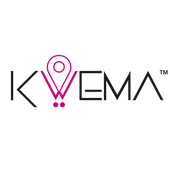Human trafficking is a serious crime and violation to human rights. Forced labor or debt bondage are just some other types, being sex trafficking the one on top of the list. Companies and organizations are raising awareness of this problem as they realize these hazards may occur in the workplace. Therefore, creating a protected environment against traffickers through employee education and training constitutes a huge step towards fighting this problem.
The primary targets
Even though males suffer this as well, female victims continue to be the primary targets, where both adults and minors are vulnerable. In 2020 the Sex Trafficking Statistics Worldwide Report revealed that there were 10,583 human trafficking cases reported out of 51,667 contacts with authorities and a total of 13,594 calls were made by victims and survivors. States such as California, Texas, Florida, New York and Georgia lead the highest numbers of reported cases.

What can be done?
Even when these numbers are highly worrying, many cases go unreported. Experts and authorities say that organizations such as hotels, healthcare facilities or any other place where victims may have a touchpoint, can take action by reaching out to workers and implementing proper training that allows staff to recognize, report and respond to suspected human trafficking. Just like this case in Georgia, where thanks to the proper training and tools nurses were able to recognize a victim of human trafficking at their hospital.
It's important to tailor the training for each organization as one size doesn't fit all. It's about knowing the context and needs so that the right protocols are given to each company.
- Be aware of state laws, regulations or initiatives that apply to your workplace.
- Know your supply chain. Learn about their processes to ensure there aren't any organizations that might be colluded in human trafficking.
- Look out for red flags. Does he/she show signs of being denied food, water, sleep or medical care? Does he/she have limited freedom of movement? Stay aware of indicators that can possible show a victim of human trafficking.
- Have reporting protocols. Call local law enforcement at 911 or National Human Trafficking Hotline at 1-888-373-7888. Calling authorities in a discrete way is key.
Safety should be a communally driven effort. When everyone is invested in their own safety and the safety of others, it makes for a healthier workplace and, in turn, a more productive one. When building the Kwema Smart Badge™, we spent hours upon end conversing not only with security managers but to employees themselves to ensure we developed a device and a protocol that’s seamless to adopt and shows employees that their management is taking an active role in their safety and training to respond to any emergency situation at the workplace.

